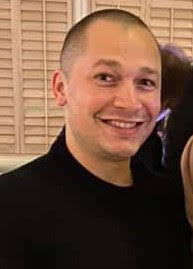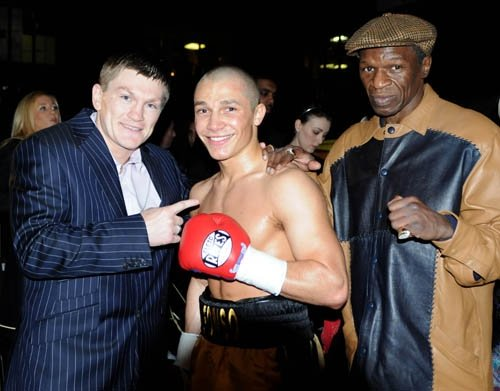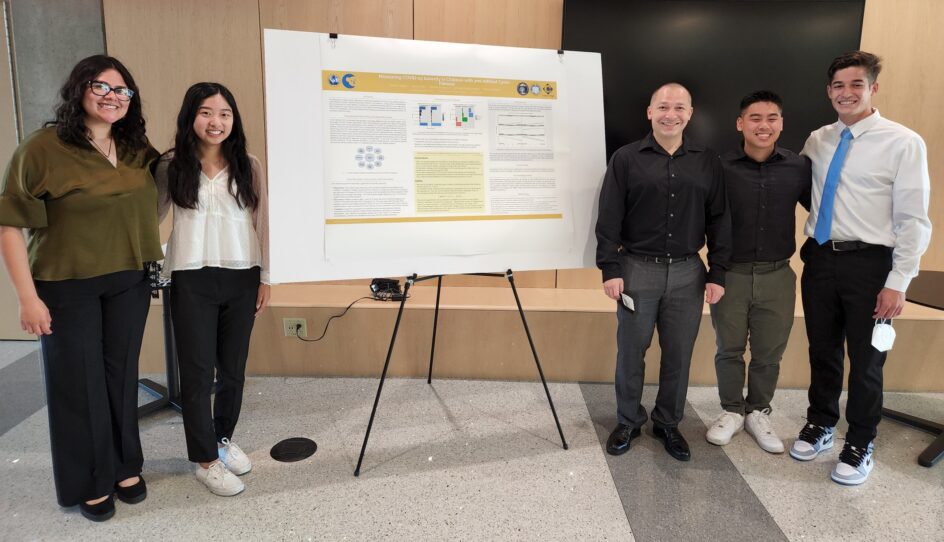Senior Spotlight: Alfonso Vieyra’s Transition from Boxing to Programming

The plan was to be a boxing champion. Growing up in the UK, Alfonso Vieyra loved the sport and boxed for years before a chronic pain in his side forced him to reevaluate his future in his early 20s. Now, nearly a decade later, he has traded the physical demands of boxing for the mental rigors of data wrangling and programming, joining UC Irvine’s class of 2024 with a degree in data science from the Donald Bren School of Information and Computer Sciences (ICS). Capping off his successful transition, he secured a job at Capital One, where he will start his career as a software engineer in their Developer Academy program. Learn here how Vierya came to find his new passion and purpose.
Tell us about your early career plans.
I started boxing at a young age, and I continued for a decade, all the way into my early twenties. I lived with my mom in the UK, and I did lots of tournaments. On one occasion, I was invited to represent England in the lightweight contest of a Scotland vs. England amateur boxing event, which was really cool! But eventually I developed a chronic condition that impeded me from being able to continue, so I had to reevaluate what I wanted to do.

I was born in Orange County, and I always enjoyed my time here and was very patriotic, so I decided to return to the U.S. and join the U.S. Navy SEALs. I thought that coming from a boxing background, the physicality would be a perfect match and a fresh start. I was very hyped about this plan, so I moved in with my grandfather and started the process of becoming a SEAL, but it all came to an abrupt end with my medical screening. It turns out I’m color blind, so the SEALs was no longer an option! At that point I was thinking, “what else can I do?” I was truly lost.
How did you end up finding a new passion in STEM?
One of the really cool things here in the U.S. is the whole community college system, which is pretty unique. So I started going to Orange Coast College, not entirely sure what I wanted to do. I was able to work during the day and attend school in the evenings, so I was hoping maybe somewhere along the way I would find myself enjoying something new.
As time went on, I started really enjoying the math classes. They were very challenging, and it’s not something I ever envisioned myself being able to do, but I was proud of myself for getting through these classes. Then I took a few programming classes, and I began to have a clearer idea of what I wanted to do. I started looking to transfer to a local four-year university, and one of the things that stuck with me when I visited UCI is its campus. It’s just so therapeutic! There’s so much beautiful scenery. So I wound up getting my transfer, and I actually came in as a math major.
What motivated you to transition to data science?
As an undergraduate research fellow of the SoCal Data Science program, I started learning about machine learning, and I realized that data science is more or less the gel of programming and mathematics. The fellowship was the highlight of my time at UCI.
We got to work on a real-life data set from the Children’s Hospital of Orange County, and our research initiative focused on trying to discern whether pediatric patients with cystic fibrosis were at increased odds of severe symptoms of COVID-19. I worked with numerous students from different backgrounds and schools, and I also had a variety of mentors, including Statistics Professor Babak Shahbaba and Mathematics Professor Bob Pelayo from UCI, and Mathematics Professor Jessica Jaynes of Cal State Fullerton. It was a very challenging project, but it gave everyone a sense of purpose, and I learned a lot about the data science pipeline.
I was able to assist my peers when it came to wrangling the data and doing the statistical modeling, and it was a process that I enjoyed. So I decided to transfer into the data science program.

Have you had a favorite professor or class in ICS?
I loved Professor Mine Dogucu’s enthusiasm for Statistics 115. She’s very uplifting, and you can tell she really cares about her students. And another favorite is Professor Jennifer Wong-Ma. I really enjoyed her classes. They are very challenging, but I feel like you walk away with what feels like a year’s worth of knowledge inside 12 weeks.
Can you also talk about how you used CodePath as a resource?
About two years ago, to better prepare myself for internship interviews, I learned about CodePath, an online platform for aspiring tech workers. I applied and was admitted into CodePath’s summer Technical Interview Prep Course, and it was a great experience. I got to network with people, have my resume reviewed, and attend different events. This is how I connected with recruiters from Capital One and learned about some of their programs.
For the record, applying to Capital One was a very long process. I applied in August 2023 but didn’t hear back until around October, and then I wasn’t hired until February. So it was a six-month process, involving a phone screening, which then led to what they call a “power day,” where you interview with three other engineers. But when I got the offer, it was such a tremendous feeling. I started going to college back in 2015 with the hopes of getting into industry, so it was a major accomplishment to finally see everything fall into place the way I had hoped!
Do you have any words of advice for prospective ICS students?
One of the biggest things that helped me was to have a plan. It might not work out exactly as you want, but having some scope of what you want to do and some structure helps you overcome small battles along the way, whether it’s struggling with a few assignments or even a few courses. Just get through each one and move on to the next big thing, staying positive. Don’t doubt yourself! There will be hiccups along the way — that’s just part of life — but they don’t define you. If anything, learn from them by exploring what went wrong and figuring out what you can can you do to push on from this.
After boxing and SEALs didn’t work out for me, things looked bleak for a moment, but there’s always an opportunity to learn something new. Once I decided to venture outside of my comfort zone, I started learning different things, and sure enough, I found something that I really enjoyed and was very passionate about. So definitely keep your head up. If you’re passionate about something, get involved in extracurriculars — like I did through CodePath. There’s a wealth of things that you can do, so don’t be afraid to get out of your comfort zone and get in the race!
— Shani Murray